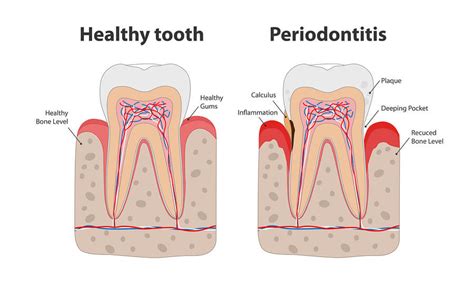How Can Tooth Infection Kill You
Ronan Farrow
Mar 20, 2025 · 3 min read

Table of Contents
How Can a Tooth Infection Kill You? A Deep Dive into the Dangers of Untreated Dental Problems
A seemingly minor tooth infection might not seem like a life-threatening issue, but the reality is that untreated dental infections can indeed be fatal. This isn't about sudden death, but rather a gradual process where the infection spreads and overwhelms the body's defenses. Let's explore the pathways through which a tooth infection can become life-threatening.
Understanding the Severity of Tooth Infections
A tooth infection, or dental abscess, occurs when bacteria invade the tooth's pulp (the soft inner core containing nerves and blood vessels). This causes inflammation and swelling, leading to intense pain, sensitivity to hot and cold, and potentially a visible pus-filled lump. The danger lies in the potential for this infection to spread beyond the tooth itself.
The Pathways to Systemic Infection:
-
Spread to the Jawbone: The infection can spread directly into the surrounding bone tissue of the jaw, causing osteomyelitis, a serious bone infection. This necessitates aggressive antibiotic treatment and, in severe cases, surgery.
-
Facial Cellulitis: The infection can spread to the soft tissues of the face, leading to cellulitis, a bacterial skin infection. This can cause significant swelling, redness, and pain in the face and neck, potentially obstructing airways and causing breathing difficulties.
-
Cavernous Sinus Thrombosis: This is a rare but potentially fatal complication where the infection spreads to the cavernous sinuses, blood-filled spaces at the base of the brain. This can lead to serious neurological complications, including blindness and stroke.
-
Bacteremia: Bacteria from the infection can enter the bloodstream (bacteremia), spreading throughout the body. This can lead to sepsis, a life-threatening condition characterized by widespread inflammation and organ dysfunction. Sepsis is a medical emergency requiring immediate hospital care. This is arguably the most direct route by which a tooth infection can prove fatal.
-
Endocarditis: In individuals with pre-existing heart conditions, bacteria from a tooth infection can spread to the heart valves, causing endocarditis, a potentially life-threatening infection of the heart lining.
Recognizing the Warning Signs
While a toothache is a common symptom, several signs indicate a potentially serious infection that needs immediate medical attention:
- Severe, throbbing pain: Pain that doesn't respond to over-the-counter pain relievers is a significant red flag.
- Swelling in the face or neck: Significant swelling can obstruct airways and needs immediate medical evaluation.
- Fever and chills: These are signs of a systemic infection, indicating the bacteria have entered the bloodstream.
- Difficulty breathing or swallowing: This indicates the infection may be affecting the airway or throat.
- Pus draining from the gums or a noticeable lump: This indicates a severe infection that's likely to spread.
Prevention is Key: Maintaining Good Oral Hygiene
The best way to prevent a tooth infection from turning deadly is to maintain good oral hygiene. This includes:
- Brushing and flossing regularly: Remove plaque and food particles to prevent bacterial buildup.
- Regular dental checkups: Professional cleanings and examinations can detect and treat problems early.
- Prompt treatment of cavities and gum disease: Address dental problems promptly to prevent infections from developing.
Remember: A seemingly simple toothache can have severe consequences if left untreated. If you suspect a serious infection, seek immediate medical attention. Don't delay; your life may depend on it.
Featured Posts
Also read the following articles
| Article Title | Date |
|---|---|
| The High Priestess How Someone Sees You | Mar 20, 2025 |
| Family Obligations How I Came To Breed My Brothers Wife | Mar 20, 2025 |
| How Deep Is The White River In Indianapolis | Mar 20, 2025 |
| Violin Sheet Music For How Great Thou Art | Mar 20, 2025 |
| How To Use Butterfly Pea Flower For Hair Growth | Mar 20, 2025 |
Latest Posts
Thank you for visiting our website which covers about How Can Tooth Infection Kill You . We hope the information provided has been useful to you. Feel free to contact us if you have any questions or need further assistance. See you next time and don't miss to bookmark.
